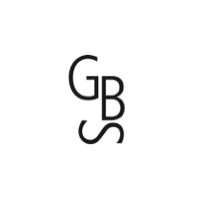Language: Northway
Code: nort3356
Amount: 1281€
The Upper Tanana language
Upper Tanana is a highly endangered Dene (Athabascan) language spoken in interior Alaska (USA) and in the Yukon Territory (Canada). There are fewer than 50 speakers today, most of them in their 70s or older. The language is no longer used on a daily basis; even the few fluent speakers communicate with each other almost exclusively in English. Individuals born in the 1960s still grew up speaking Upper Tanana, however most of them have lost fluency and only use a few rote expressions. Local revitalization measures struggle with a lack of linguistic and cultural resources.
About the book
Work on this book began in 2007, when I recorded the first stories with Mrs. Avis Sam. Over the next few years, Mrs. Sherry Demit-Barnes and the late Mrs. Darlene Northway also turned out to be wonderful storytellers. In 2012, we decided to apply for funding from the Social Sciences and Humanities Research Council of Canada to support the documentation and dissemination of stories from Northway, Alaska. While the word ts'exeey 'women' features prominently in the title, the emphasis on the female viewpoint was not by design but coincidental: as a female researcher, it is more socially acceptable for me to work with women than with men.
While the storytellers' original focus was on "old-time" stories, i.e. stories relating events that took place before the arrival of white people, many of the stories are more recent. The selection of stories to be included was done by the speakers. Audio, and in many instances video, recordings were sometimes done in groups (with several speakers helping to remember a story), sometimes in individual settings. Transcripts were prepared in ELAN by myself and my student Caleb Brucks with the assistance of the storytellers and two additional elders: Mr. Roy Sam and Mrs. Rosa Brewer, both also from Northway. Transcripts were reviewed with speakers many times to ensure accuracy of transcription and translation; speaker also edited the stories by changing the phrasing, translating English parts back into Upper Tanana, or making additions.
The organization of the story collection into three sections was suggested by the storytellers, and we discussed carefully which story belongs in which section. The first section, Neenaattheh dą’ dąą’ needįįni’–Stories they used to tell us a long time ago, contains traditional narratives. They feature characters well known in Alaskan Dene cosmology such as Raven, Loon, or Grandmother Spider. These stories explain not only why the world is the way it is, but also contain many lessons
for young people about proper behaviour and provide guidance through an often hostile world. The second section, Hǫǫ’ ch’a hįįdį’ niign nats’iholnegn– We talk about how they used to do things, contains historical accounts: events that happened to the speakers themselves or to their parents. The final section, Dąą’ ch’a huxa ts’udeldįį–This is how we learn, contains teachings. Most of these texts are procedural in nature, others are musings on the "right" way to live.
Taken together, the narratives in this collection tell a fascinating story of a life rooted both in the "old", indigenous and the "new", "white" way, shedding light on the very brief transition period between an almost exclusively traditional way of life (until 1913, the beginning of the Chisana goldrush) and the modern way of life (from the 1940s on, where construction of the Alaska Highway through Upper Tanana territory began). To make the resource useful to language learners, a flash drive
including the original story sounds is included.
One sad aspect of work with severely endangered languages is the fact that sometimes, the contributors are no longer around to see the finished product. This is true of Darlene Northway, who passed away in 2012, and of Rosa Brewer, who passed away in 2021. But there’s also a lesson in this: we need to keep going even when we lose important contributors. With persistence and teamwork from all who care about it—speakers, learners, linguists— the Upper Tanana language can regain its strength.
